#trans victor frankenstein
Explore tagged Tumblr posts
Text
me when i just made a skeleton outline of the trans frankenstein idea i had 🧍♂️
#call me productive ig#frankentstein#victor frankenstein#if only i put this amount of effort into my actual book#maybe then it would be written by now#alas#trans victor frankenstein
4 notes
·
View notes
Text
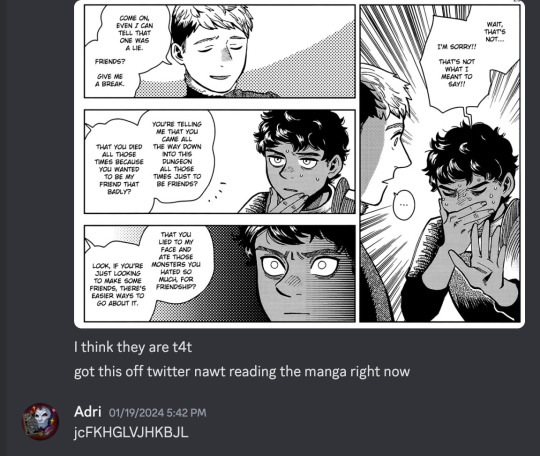
having read the manga now... I still think they're t4t but in a new unprecedented fashion. I have no idea what's going on with Laios, but take my hand...
#labru#dungeon meshi#dungeon meshi manga spoilers#kabru of utaya#laios touden#the thing with laios is that he has a lot of interesting things to analyze gender wise but most of those things are like#so linked to species that it's a little odd to classify#i think it's why i like every trans hc with him#nebulous fucking thing#I'm shaking him until he agrees to read My Words to Victor Frankenstein#above the Village of Chamounix: performing transgender rage
305 notes
·
View notes
Text
anyway. victor frankenstein spends the book running away from and demonizing his femininity which implies that he is transfem or at least not cis and repressing it. in this essay i will
#im truthing she/he victor#anyway i found the gender (not the trans part but the femininity part) in a genuine anaylis book on frankenstein. so.#dont take this too seriously pls#victor frankenstein#frankenstein#rain feathers talks
118 notes
·
View notes
Text
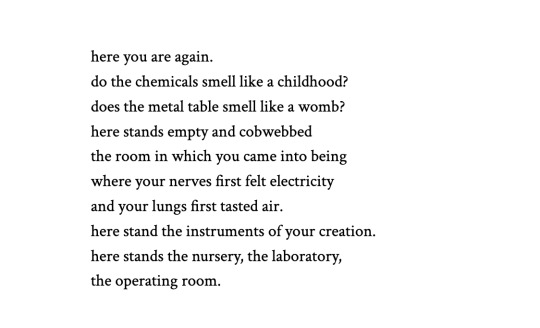
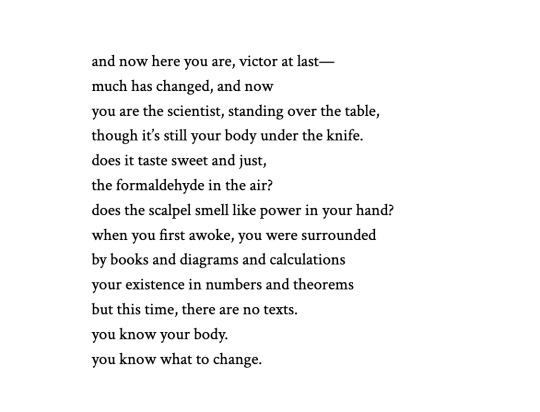
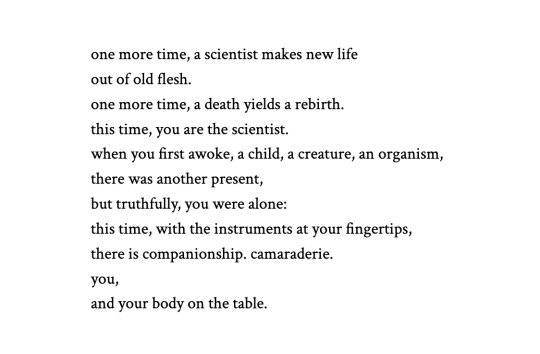
elegy in which you are the creator in the laboratory // october 29 2023
#let's go babeyyyyy. getting my little queerness and horror poems in before halloween#need to commit to writing more of these at all times of the year. anyway#poems about being trans#poems about being nonbinary#another poem about frankenstein#did not mean this to seem so directly about gender affirming surgery. kind of supposed to just be an identity thing in general haha.#but hey. it is in the people's hands now#this is also technically about god and whatnot cause whenever i'm writing about frankenstein and the monster#victor frankenstein is a parallel to god and the monster is humanity. you can just take that as a given from me#so. y'know. us when we're god's creations but reforming ourselves to be the way we want to be :)#and that's transness in general babey not just surgeries#let's go girls! let's remake ourselves against god's wishes! his bitchass can't do shit about it now!#poetry#poem#poems#poems and poetry#poets on tumblr#poetsandwriters#original poetry#trans poet#trans poetry#trans#<3
226 notes
·
View notes
Text
frankenstein. transgender. you agree
177 notes
·
View notes
Text
So is the Creature from Frankenstein trans-coded or am I dumb and self projecting?
I swear, I COULD write an essay or bullet list on what I mean rn but I got homework
#frankenstein#gothic horror#victor frankenstein#the creature#no but in all seriousness#the Creature is VERY trans coded#specifically when Victor and the other humans treated him like shit for who he was#transgender
13 notes
·
View notes
Text

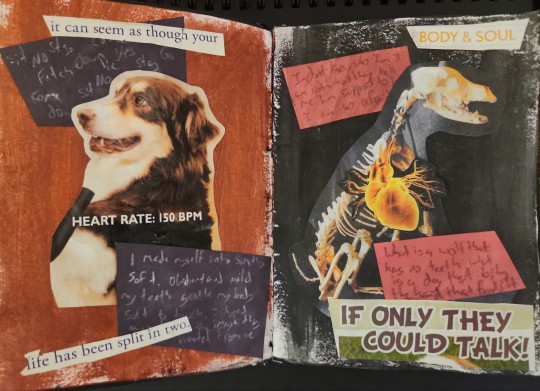




werewolf zine
#day 9#werewolf zine#collage#inspired by a few books and essays but mostly#my words to victor frankenstein by susan stryker#which is an absolutely incredible work#everyone should read it#fundamentally changed me tbh#werewolf#transgender#trans artist#trans werewolf#werewolf art#queer art#zine#frankenstein#monster art#my art
51 notes
·
View notes
Text
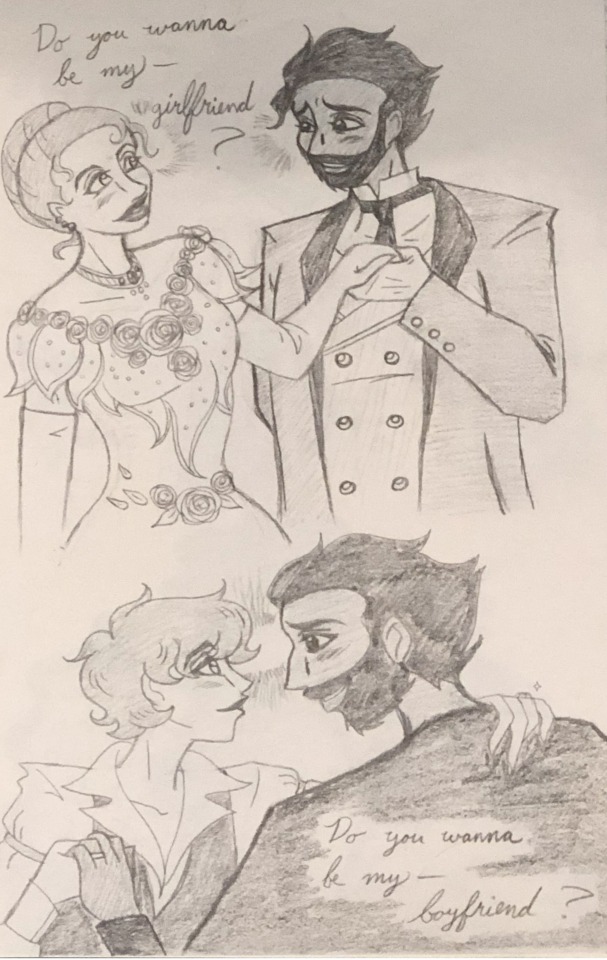
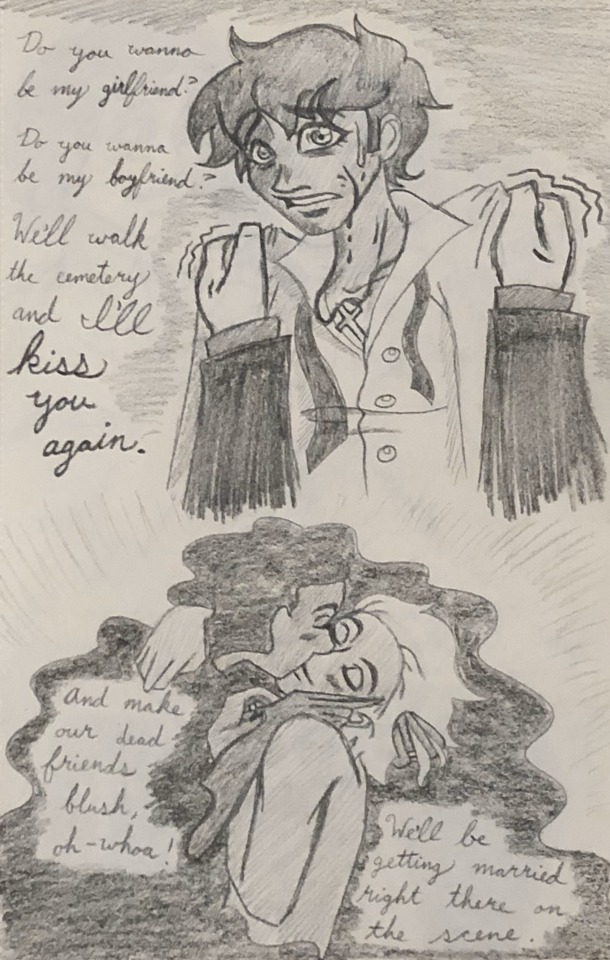
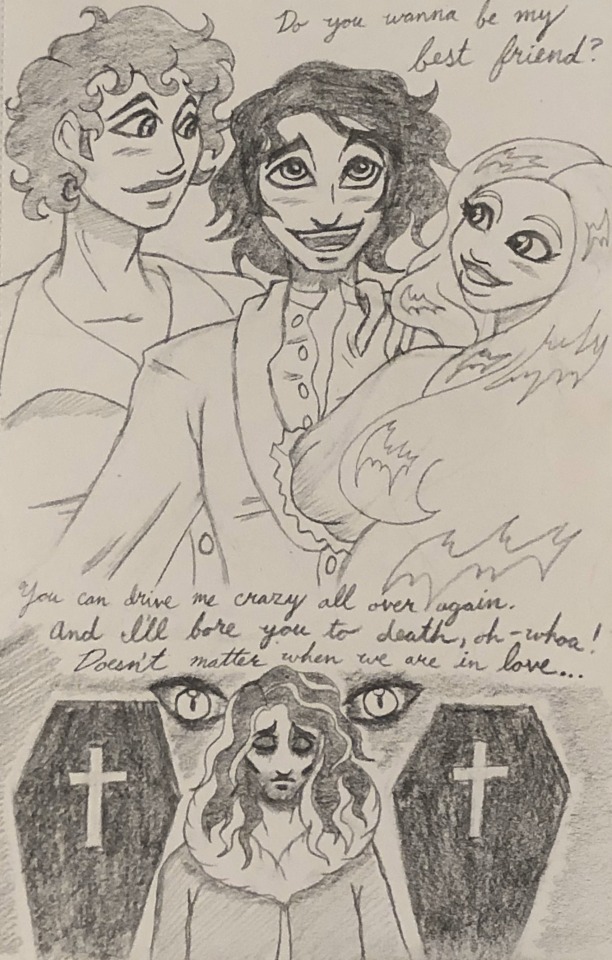
Do you wanna be my boyfriend? Do you wanna be my boyfriend? Do you wanna be my boyfriend? Do you wanna be my boyfriend?
You're not just any type of girl My one true love And you're my world
Something about the nebulous nature of gender across three of my favorite classic characters and the ones who love* them.
*Love here including the good, the bad, and the gothic.
Pictured top to bottom:
Irene Norton, formerly Adler, and Godfrey Norton of Sherlock Holmes' "A Scandal in Bohemia"
Jonathan Harker, Dracula, and Mina Harker, of Dracula
Henry Clerval, Victor Frankenstein, Elizabeth Lavenza, and the Creature, of Frankenstein
#this album is eating holes in my brain#irene adler#godfrey norton#sherlock holmes#jonathan harker#mina harker#dracula#victor frankenstein#henry clerval#elizabetha lavenza#the creature#frankenstein#green day#bobby sox#genderfluid#trans#biromantic#bisexual#pansexual#lgbtqa#my art
72 notes
·
View notes
Text
Currently in the process of re-reading Frankenstein, and maybe this is just me projecting, but I'm definitely getting gender vibes from both the title character and his creation
Consider: Victor is in constant, visible despair over his inability to confess a truth that he knows nobody will believe, his abject fear of being labeled a madman, while his family repeatedly makes well-meaning but painfully inadequate attempts to lift his spirits
The parallels with the monster are arguably even more direct; created in a hideous body, abandoned by the one who gave him life and forced to fend for himself in a world that hates him for how he was born, eventually consumed by both internalized self-loathing and a desire to lash out at those who've wronged him
Somebody get these girls some estrogen
#frankenstein#victor frankenstein#trans#frankenstein's monster#literary analysis#mary shelley's frankenstein
8 notes
·
View notes
Text
So we all agree Victor Frankenstein is a transmasc icon right?
#mary shelly's frankenstein#mary shelley#victor frankenstein#Frankenstein#the modern prometheus#gothic lit#trans
65 notes
·
View notes
Text
If you could suspend your disbelief enough to buy that a teenage university student was able to discover the secret to creating life, and with this knowledge made an 8 foot tall creature out of human parts in the attic of his dorm room, I think you could reasonably believe that the said university student would also be able to give himself top surgery
#i want to write fics where victor is explicitly trans#but i'm not sure whether readers would buy it#victor frankenstein#frankenstein#transgender#gothic literature#classic literature#goth lit#mary shelley
77 notes
·
View notes
Text
Looking exactly like Victor Frankenstein would literally solve all of my problems forever.
#might start sleep depriving myself#that last part is a joke#frankenstein 1818#victor frankenstein#sometimes I wanna get top surgery just so I can be more like him#this is concerning#sorry#I don’t think I’m trans but#it would be so funny#if he was my transgender awakening
12 notes
·
View notes
Text
victor frankenstein is trans. i don't care which way but he does have gender Things and it is in fact an important part of his character
#as supported by multiple published analyses i've read#do they say he is trans? in all but the word. gender and the subversion of gender roles is integral to frankenstein#with victor as the main example of that. this often ties into queerness but i think even beyond that his relationship with being a man#is complex and in such a way that strongly suggests transness or at the least gender non comformity#rain feathers frankenstein#victor frankenstein
7 notes
·
View notes
Text
Chava and Lichinka vibes. Victor Frankenstein × Creature coded T4T couple and self-deitification.

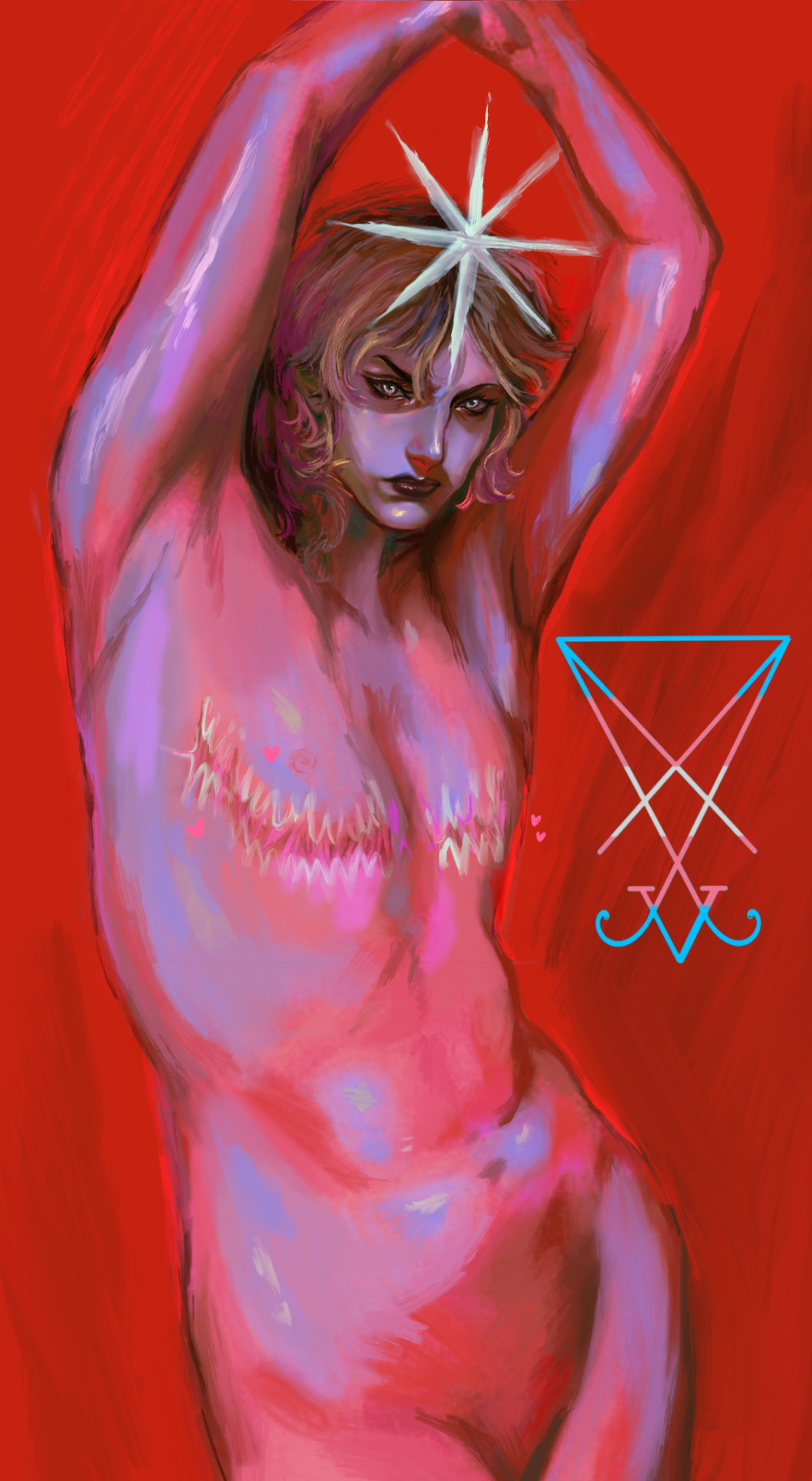


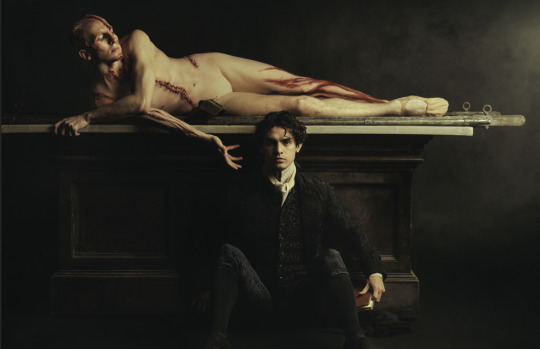

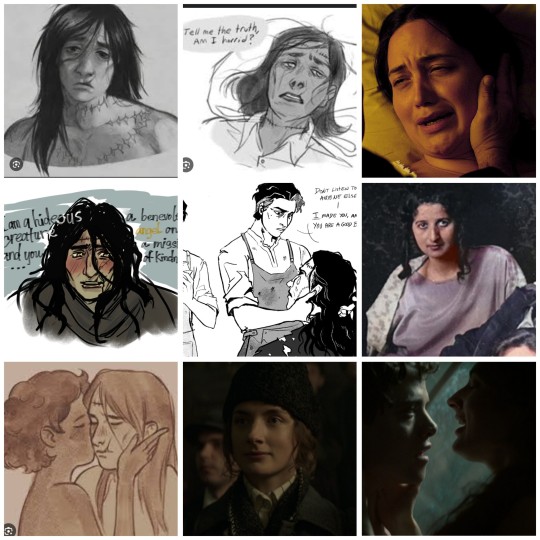

#my ocs#Lichinka Gorky#Chava#trans character#t4t#self-deitification#apotheosis#viktor frankenstein#victor frankenstein#frankenstein's creature#frrankenstein × creature#dionysian#my fanfic#the mysteries of dionysus#transgender#trans pride#does this count as#liberation theology#queer liberation#queer historical fiction
10 notes
·
View notes
Text
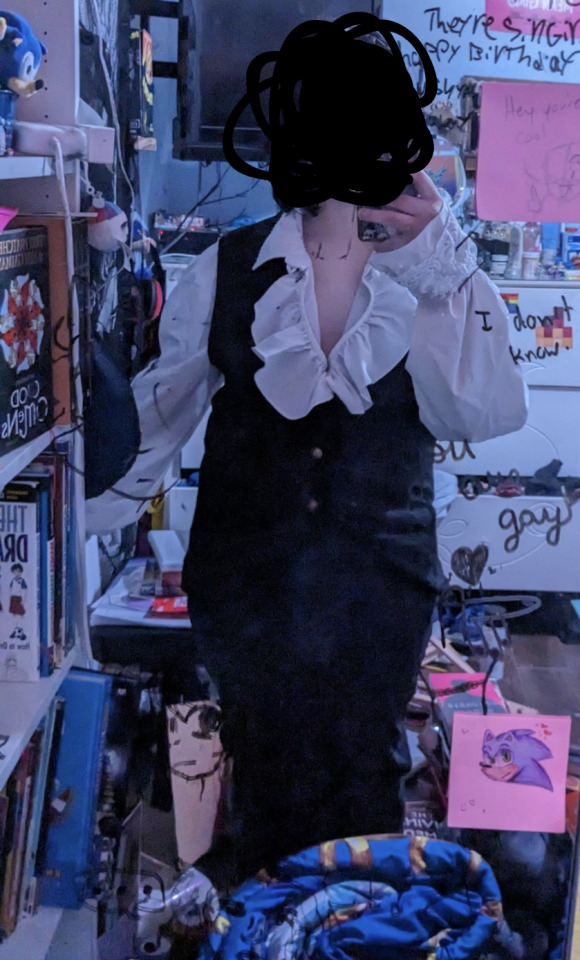
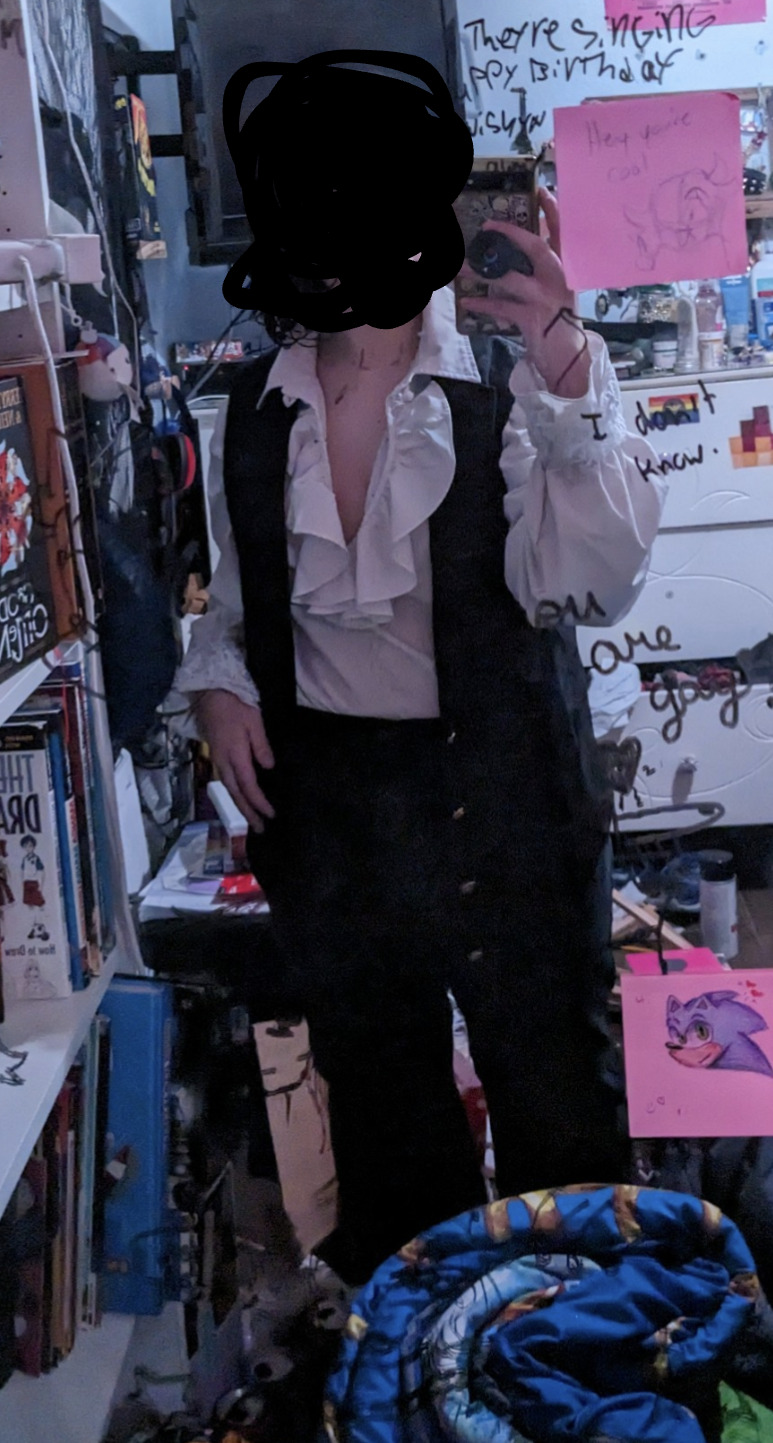
The cure to gender dysphoria is dressing up like Victor Frankenstein actually
#the goal was my idea of book frankenstein but it reminds me more of musical victor#i also felt like robert walton#i felt more like walton than frankenstein tbh#living out my want to be a sickly regency era boy#not actually but yk#gender dysphoria#gender euphoria#transmasc#victor is also trans because im trans sorry i dont make the rules#victor frankenstein#robert walton#frankenstein#I'll probably draw either victor or robert in this outfit#THE CURE REFERENCE????!!1!1!?1????!
35 notes
·
View notes
Text
I refuse to accept any cisgender explanation for Wagner making a homunculus in Faust pt II
#i have the same words for victor frankenstein#something something science or alchemy in this case allowing people to act beyond the gender binary#Wagner defeats the gender binary with her powers of logic and reason#idk im trans but dont listen to me
7 notes
·
View notes